Memory fades. It has, unfortunately, at The Washington Post, which now seems to hardly remember a columnist who was the victim of a dastardly act of state murder.
In October 2018, Jamal Khashoggi, a Saudi Arabian journalist and dissident who contributed to The Post‘s opinion pages, went to the Saudi consulate in Istanbul to obtain documents for his forthcoming marriage to a Turkish woman. He was never seen again.
Agents of the Saudi government assaulted and killed him inside the compound. His body, never recovered, was reportedly dismembered by a medical specialist using a bonesaw.
The grisly crime precipitated an international crisis. The Senate passed a resolution)” href=”https://urldefense.com/v3/__https:/www.nytimes.com/2018/12/13/us/politics/yemen-saudi-war-pompeo-mattis.html__;!!LsXw!W4FimOyjz9PbtfxDdWMlz1BklX1_0BipTo7mntccRrWkwXIWKQl_iZ_pakvShgeeHcy88hHxMvunyP63TFHlCzE91gU3QA$” rel=”” title=”https://urldefense.com/v3/__https:/www.nytimes.com/2018/12/13/us/politics/yemen-saudi-war-pompeo-mattis.html__;!!LsXw!W4FimOyjz9PbtfxDdWMlz1BklX1_0BipTo7mntccRrWkwXIWKQl_iZ_pakvShgeeHcy88hHxMvunyP63TFHlCzE91gU3QA$”>passed a resolution condemning the Saudis, pinning the blame on the nation’s ruler, Crown Prince Mohammed bin Salman, known as MBS, who apparently acted in retaliation for Khashoggi’s columns critical of the prince and royal family. Time magazine later named Khashoggi its “Person of the Year,” the embodiment of government persecution of journalists around the globe.
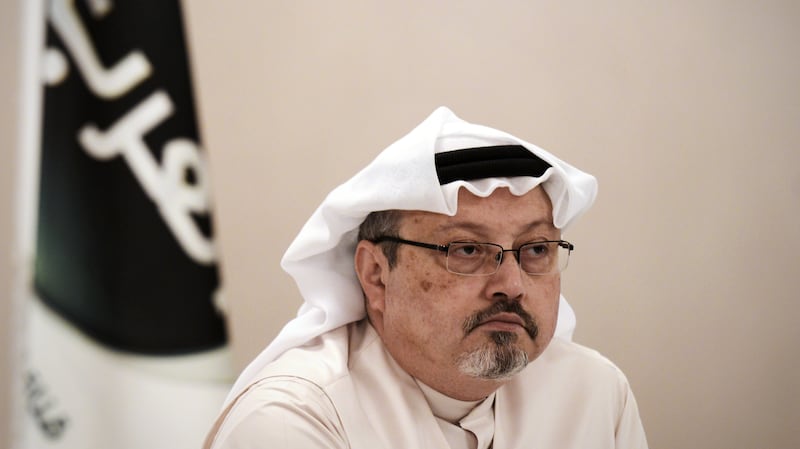
No publication covered the aftermath of Khashoggi’s assassination quite as passionately, or as meticulously, as The Post. The newspaper rallied both its news and opinion staffs, publishing investigative news stories, feature stories, editorials, columns and cartoons in the days and weeks after Khashoggi disappeared.
Among the paper’s revelations was the CIA’s conclusion, six weeks after the fact, that MBS had ordered a Saudi hit squad to kill Khashoggi—a finding that President Trump, then in his first term, explicitly rejected (“You can conclude that maybe he did or maybe he didn’t,” Trump said at the time). In 2019, the paper’s coverage of Khashoggi was named a finalist for the Pulitzer Prize in public service. The Pulitzer board called The Post’s work “commanding and courageous.”
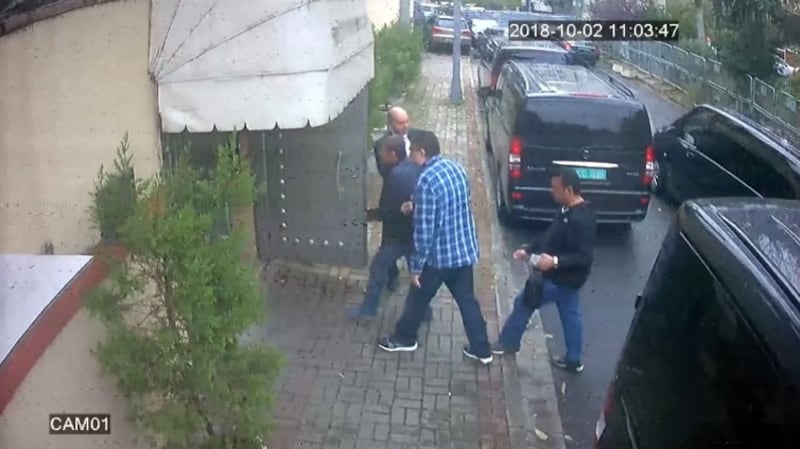
But that was then.
In the week preceding Trump’s trip to Saudi Arabia, The Post offered not a single word about Khashoggi: no opinion columns reminding its readers of Saudi complicity in the crime, no cartoons or editorials memorializing a fallen comrade, no outrage over Trump’s memory-holing of the kingdom’s nefarious conduct.
On Tuesday, as Trump met with MBS in Riyadh, showering praise on the prince, The Post broke its silence, but only barely.
Its most prominent mention of Khashoggi wasn’t very prominent at all. Buried deep within a news story recounting the day’s speeches and events, Khashoggi’s sad fate rated just 185 words. MBS’ role in masterminding his murder drew a single sentence. The Post also fleetingly referenced Khashoggi in an article about the tech barons accompanying Trump to Saudi Arabia and in a piece about the extravagant royal welcome Trump received, the latter written by the Associated Press.
Contacted for comment, Post executive editor Matt Murray cited the reference to Khashoggi in its news story but offered no further elaboration. His counterpart on the editorial page, interim editor Mary Duenwald, didn’t respond to a request for comment.
The Post’s brief mention of Khashoggi had its own telling overtones. The story noted that Saudi Arabia “was shunned by the international community and business leaders for a time following Khashoggi’s killing.” But it added, “investors and brands are now back.” What The Post doesn’t say is why “investors and brands” are back, or how they justify their return. Did Trump’s assiduous courting of the royal family persuade them to let bonesaws be bygones? Did the lure of Saudi petro-dollars trump moral qualms about the state-sponsored homicide of a journalist?
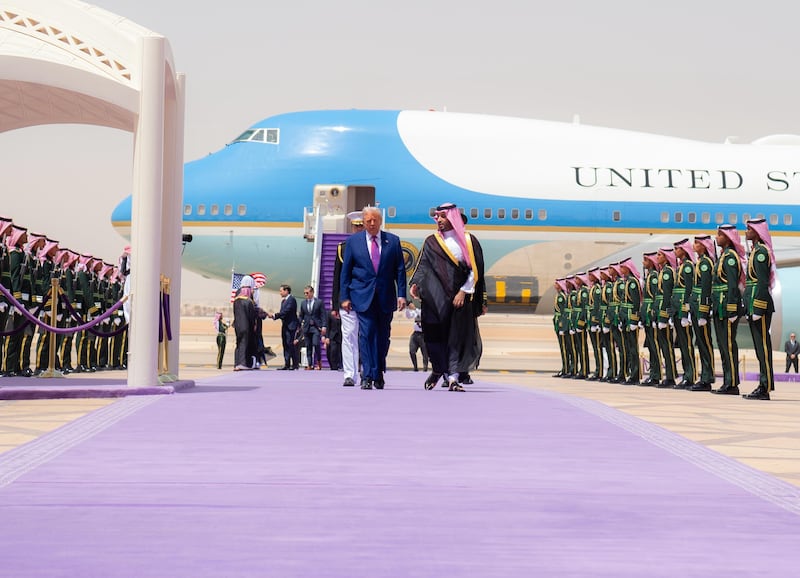
The Post sheds no light on these questions, despite the presence in Riyadh of a blue-ribbon contingent of 250 American business figures, including Elon Musk and the CEOs of Amazon, OpenAI and the Blackstone and BlackRock investment companies. None were quoted in the main news story, or in the sidebar about the presence of tech executives. (The paper’s representatives highlighted seven other stories this year mentioning Khashoggi; no reference is more than a sentence in length.)
To be sure, The Post has been a leader in championing the causes Khashoggi personified. Its Global Opinions page has been a prominent venue for reminding readers of the suppression of free expression by dictatorial regimes around the world.
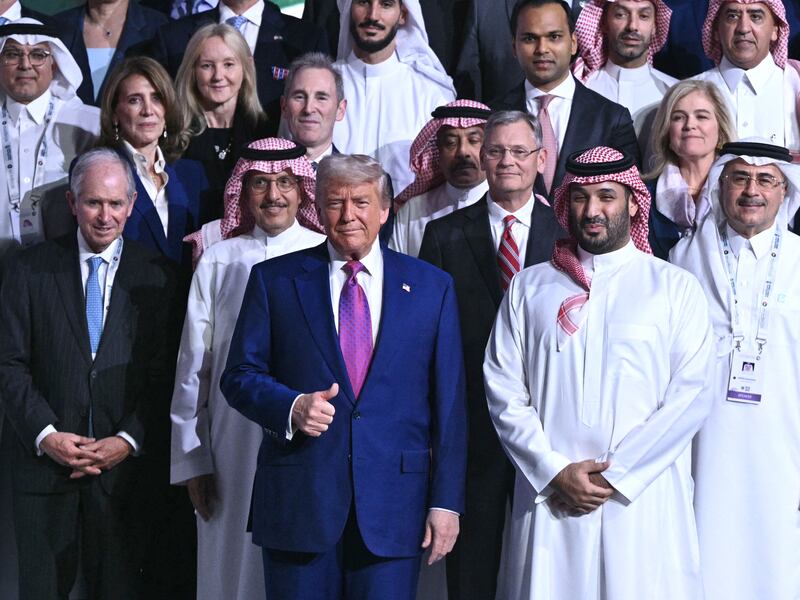
The newspaper published columns by Alexei Navalny, the late Russian dissident and a compatriot, Vladimir Kara-Murza, documenting Vladimir Putin’s oppression; Kara-Murza’s brave dispatches from a Moscow prison cell won the Pulitzer for commentary last year. It has kept attention on the plight of freelancer Austin Tice, missing in Syria since 2012 (Murray earlier this month interviewed Tice’s mother at a National Press Club luncheon).
Owner Jeff Bezos personally crusaded for the release of Post journalist Jason Rezaian from Iranian custody in 2016.
Which makes its tepid, near-indifferent references to Khashoggi amid Trump’s trip this week all the more curious.
Trump has downplayed Saudi Arabia’s human-rights record in favor of continued arm sales, investment and cooperation in the Middle East. In 2020, near the end of his first term, he boasted in an interview with journalist Bob Woodward that he “saved [MBS‘] a–” when Congress threatened to cut off support for Saudi Arabia over Khashoggi’s murder and the humanitarian crisis precipitated by its war in Yemen. In contrast, then-candidate Joe Biden called Saudi Arabia a “pariah,” and vowed in 2020 to punish it for Khashoggi’s assassination. But Biden backed off, and as president met with MBS in Saudi Arabia in 2022, offering an infamous fist bump.
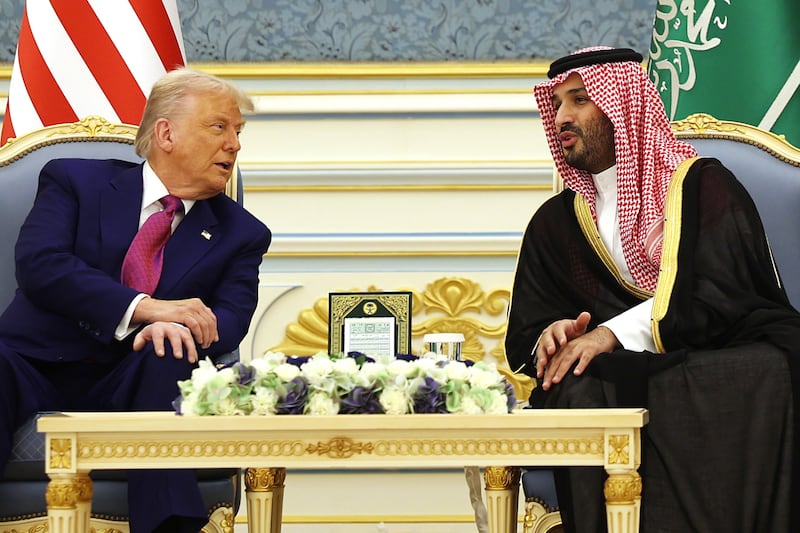
Inside the Post, those who were part of its Khashoggi coverage express sadness and disappointment in the paper’s near-indifference to his story today. They recall what now seems like a distant past. They note the institutional support they received; the paper’s reporting on Khashoggi was championed by then-publisher Fred Ryan, and openly supported by Bezos. Bezos flew to Istanbul)” href=”https://urldefense.com/v3/__https:/www.businessinsider.com/jeff-bezos-visit-saudi-consulate-istanbul-khashoggi-murder-anniversary-2019-10__;!!LsXw!W4FimOyjz9PbtfxDdWMlz1BklX1_0BipTo7mntccRrWkwXIWKQl_iZ_pakvShgeeHcy88hHxMvunyP63TFHlCzFNIhfSew$” target=”_self” rel=”” title=”https://urldefense.com/v3/__https:/www.businessinsider.com/jeff-bezos-visit-saudi-consulate-istanbul-khashoggi-murder-anniversary-2019-10__;!!LsXw!W4FimOyjz9PbtfxDdWMlz1BklX1_0BipTo7mntccRrWkwXIWKQl_iZ_pakvShgeeHcy88hHxMvunyP63TFHlCzFNIhfSew$”>flew to Istanbul in October 2019 to attend a vigil at the Saudi consulate marking the one-year anniversary of Khashoggi’s death. He tweeted a photo of himself with Khashoggi’s fiancée, Hatice Cengiz, at a memorial stone, under the hashtag #Jamal.
#Jamal pic.twitter.com/8ej1rUBXVb
— Jeff Bezos (@JeffBezos) January 22, 2020
It was the last time Bezos publicly mentioned the Post writer.
In 2019, under opinion editor Fred Hiatt, the Post named a fellowship after Khashoggi. The idea was to offer a platform for journalists and writers from places where democracy remains under threat. It was a living memorial, an explicit act of remembering. Hiatt, who died suddenly in 2021, said in 2019, “We are honored to pay tribute to Jamal’s life and work and to the values he cared most about, including freedom of expression.”
Alas, the fellowship is no more. The Post ended it after two years, and after only two writers held the position. There was no announcement of its demise.
It went quietly, just one more act of forgetting.
The post Opinion: How Bezos’ WaPo Forgot its Martyr—as Trump Embraced his Killer appeared first on The Daily Beast.




